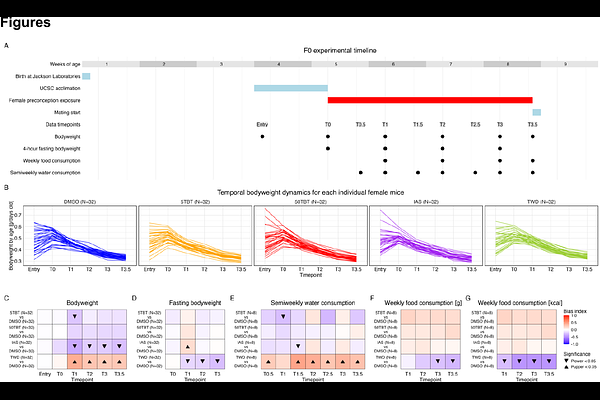Offspring effect of maternal preconception exposure to metabolic disruptors

Offspring effect of maternal preconception exposure to metabolic disruptors
Diaz-Castillo, C.; Aguiar, S. R.; Chamorro-Garcia, R.
AbstractOver the past several decades, there has been a resurgence in the field of multigenerational research, which focuses on the transmission of environmental effects across generations and their correlation with the prevalence of chronic diseases. Traditionally, it has been hypothesized that the propagation of such effects is mediated by alterations in gene regulatory elements sensitive to environmental cues. These alterations can be perpetuated throughout development and across generations in the absence of any genetic changes, such as DNA methylation or histone modifications or non-coding RNAs. Evidence suggesting that the compartmentalization of eukaryotic genomes into heterochromatin and euchromatin plays a crucial role in mediating multigenerational metabolism-disrupting effects elicited by the exposure to different metabolism disruptors has been observed in mice and fruit flies. This suggests that eukaryotic nuclear genomes may generally possess the capacity to integrate the impact of environmental cues in a metastable manner that is phenotypically relevant. In this study, we present the initial results of a murine model to determine whether preconception exposure to metabolism disruptors leads to metabolic alterations in the offspring of exposed individuals. We specifically focused on investigating the effects of three metabolism disruptors of distinct nature, designed to model the complexity of human exposures. Our findings are not only consistent with our central hypothesis but also open an unexpected avenue to explore whether preconception exposure to metabolism disruptors can predispose the offspring of exposed individuals to not only typical metabolic diseases such as obesity, but also to complex metabolic-psychiatric conditions such as anorexia.